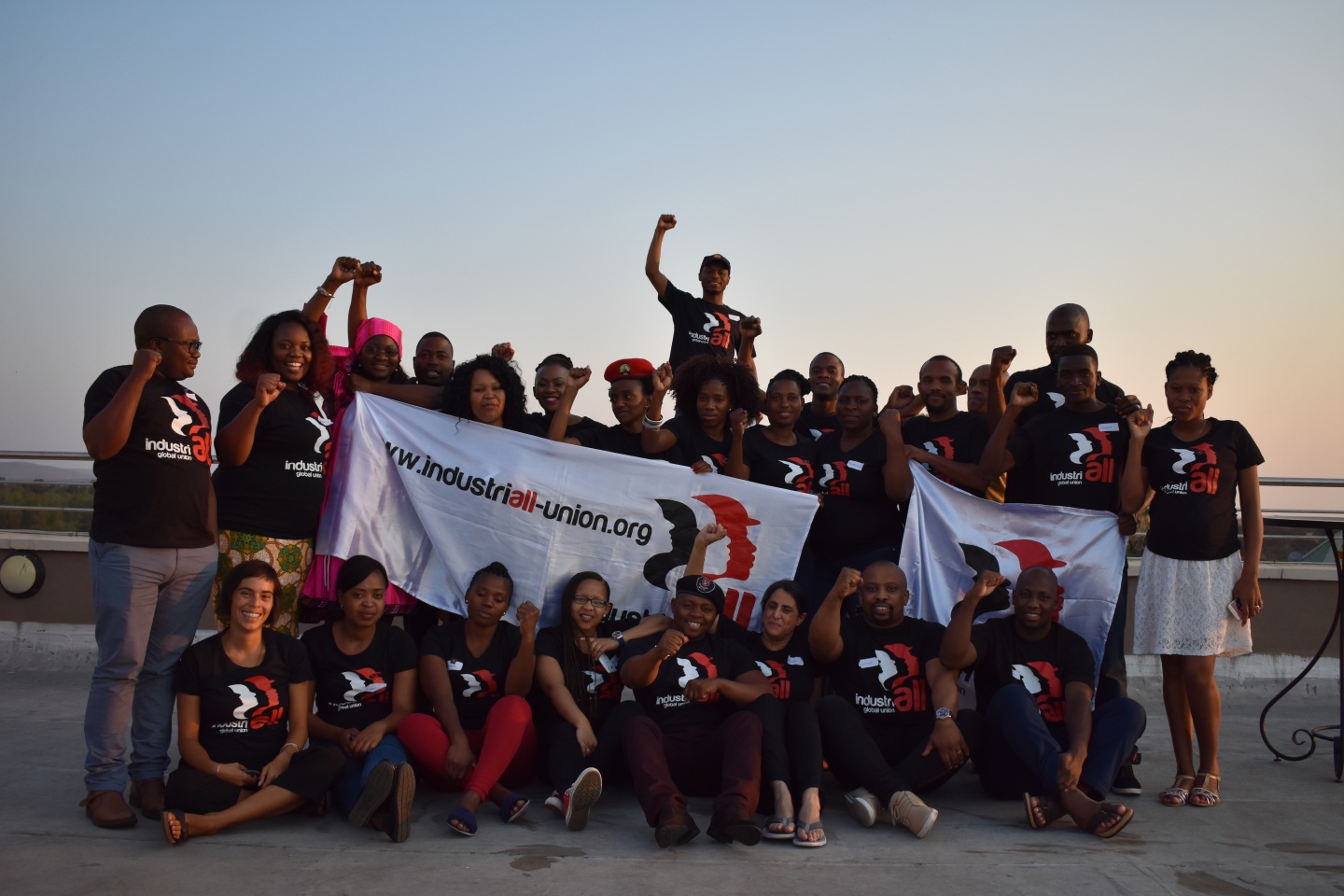27 September, 2017Young workers from 11 IndustriALL affiliates representing the construction, chemical, garment and textile, energy, metal and mining sectors in Southern Africa, from Botswana, Lesotho, Mozambique, Namibia, South Africa and Swaziland met in Gaborone, Botswana, from 20-21 September, to discuss how they can network and develop joint actions on common struggles. The workshop explored ways to increase the participation of the youth in unions.
Supported by the Friedrich Ebert Stiftung, the workshop discussed building strong unions through organizing and recruiting more workers. Such organizing would be on issues that workers faced every day like low wages and poor working conditions. Therefore, the fight against low wages in Lesotho and Swaziland’s garment and textile sectors, and the living wage campaign in Southern Africa had to be intensified.
Affiliates from Mozambique attended for the first time, strengthening regional networking and coordination.
The meeting also supported the return of the US Africa Growth and Opportunity Act benefits to Swaziland as this would lead to the recovery of lost jobs and improved wages. On migrant workers, it was agreed that they should enjoy the same benefits as other workers.
The workshop agreed to demand the respect of workers and human rights from their governments. The governments should also implement the African Youth Charter which called for education and skills development, poverty eradication, youth employment and sustainable development.
Protecting jobs in the case of retrenchments in mining and other sectors was a must. This, the participants argued, showed the need for collective bargaining agreements that protected workers interests. It was also agreed that unions should continue to fight against precarious work and outsourcing of work through labour brokers.
For unions to be effective against global capital worker education should play its role by exposing the activities of multinational corporations and explaining trade agreements.
The workshop emphasized the importance of addressing gender inequality, ending sexual harassment at workplaces, and campaigning for maternity protection as well as health and safety at work. More awareness was needed on HIV and AIDS as the epidemic continued to affect more young adults.
The workshop concluded that union survival was also based on understanding economic policies that created sustainable jobs. For instance, diversification towards manufacturing instead of depending on mining alone, created more jobs as argued in the African Mining Vision.
Sarah Flores, IndustriALL project and youth officer, said:
“A strong sense of cross border solidarity emerged among the young leaders at this workshop. While discussing the different struggles they face, they came to the conclusion that no local improvement can be sustained if it doesn’t happen at a regional level.
This understanding of the need for solidarity will with no doubt be a driver within the youth Southern Africa network and their fight for economic and social justice.”










